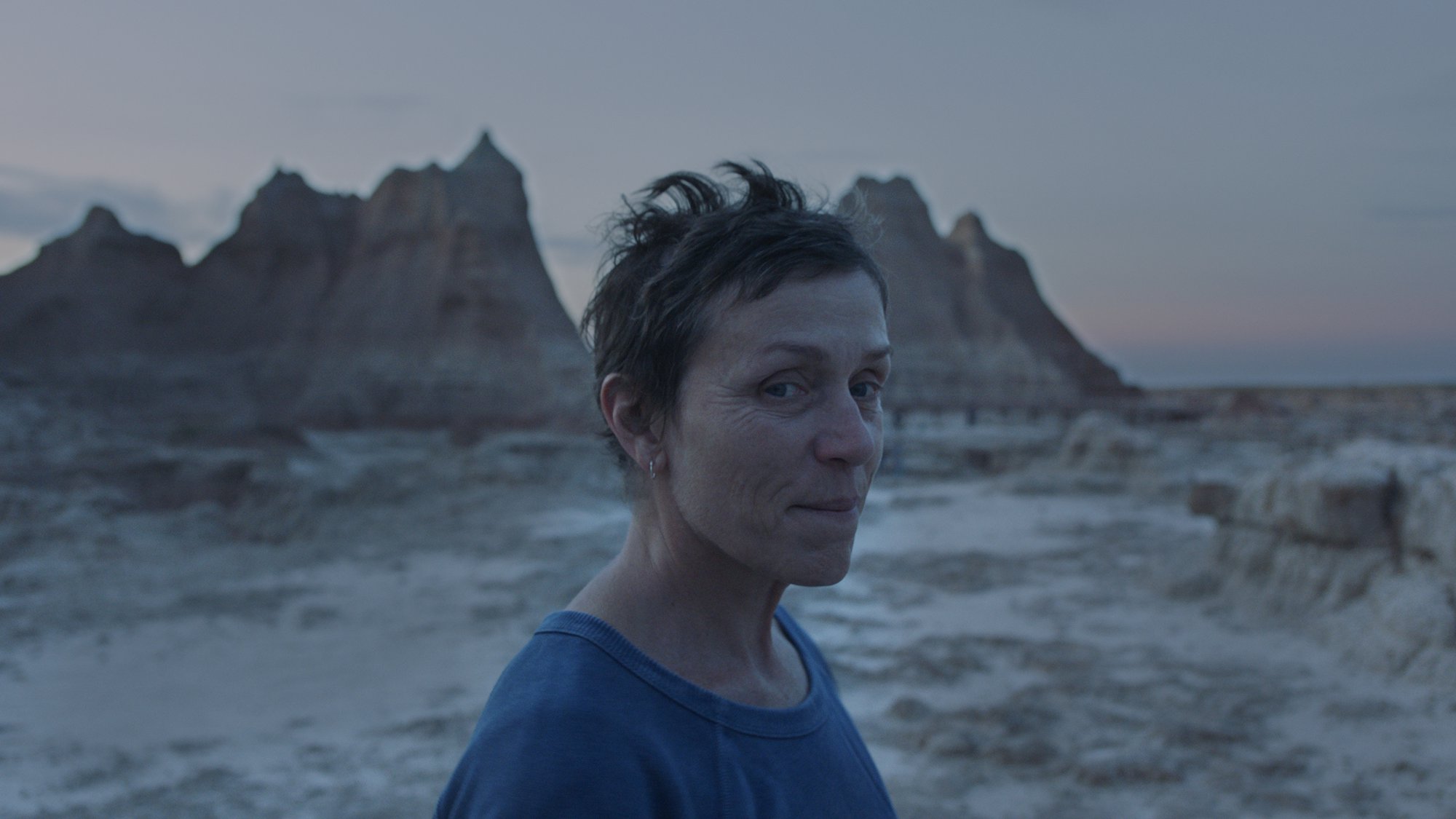 On the heels of its Golden Lion win at the Venice Film Festival and Golden Globes nominations, Chloe Zhao’s Nomadland has been released in theaters and Hulu.
On the heels of its Golden Lion win at the Venice Film Festival and Golden Globes nominations, Chloe Zhao’s Nomadland has been released in theaters and Hulu.
Nomadland, directed by Zhao, is an eye-opening look at the lifestyle of nomads in the United States. The film stars Frances McDormand as Fern, a woman struggling with grief starting a life as a nomad figure across the United States, meeting fellow nomads on her journey. As with The Rider (2017), Zhao takes advantage of giving the film a realistic feel with various scenes feeling almost documentary-like in their execution. I have no doubt several lines were improvised between McDormand and the other actors because of how natural their delivery was.
The main attraction of the film is definitely the stunning cinematography. Multiple times throughout the film, the scope of Fern’s journey is shown as she travels through the landscapes of the American West. This emphasis on nature cinematography is a staple of Zhao’s work with similarly staged shots appearing in The Rider. The cinematography in Nomadland expands upon the cinematography in that film with the use of various tracking shots following Fern. Expounding upon this is the use of fog and blue filters in the cinematography reflecting Fern’s state of mind in her travels.
As typical for McDormand, her performance as Fern in the film is fantastic, showing her trademark strength in personality equaled with the character’s realistic vulnerability. As the only other trained actor in the film, David Strathairn effectively breaks away from his type as a stern authority figure to be the relatively down to earth Jack who develops a bond with Fern. The remaining cast composed of real-life nomads playing themselves shine in their responses to things they find in their travels with Fern. Their inexperience would be problematic to the film’s effectiveness, but Zhao’s direction ensures their performances strike a perfect balance between acting and the nomads being themselves.
A common theme in Zhao’s work is in the exploration of people who live on the outskirts of American society and how they struggle with their sense of identity. Continuing this theme, Nomadland is a film less concerned with a three-act plot structure and more into how troubled individuals pick up the pieces and reforge new paths. In some ways Nomadland is like reality because it does not fit in any kind of structure and focus on struggles that real-like human beings go through. I feel directing Marvel’s Eternals is a misstep from a thematic perspective in Zhao’s work because of how the premise of those comics is incongruent with the themes in Zhao’s films.
Looking ahead to its nominations, I am confident that at the very least the film will receive the Best Picture and Best Actress-Drama at the Golden Globes. Considering the achievements of the film, it would be a massive snub if it did not. The film shows the vastness of the potential of diverse voices when given sizable budgets by major studios. After watching Nomadland, I am excited to see how Zhao uses her talents to reimagine Dracula as a science-fiction western in the upcoming Universal remake.
 Valenti Govantes is an FIU student in his final semester who enjoys movies and graphic novels. He has a career goal to enter the advertising industry in the entertainment field. He is always open to talk for a millennium about horror and science fiction movies.
Valenti Govantes is an FIU student in his final semester who enjoys movies and graphic novels. He has a career goal to enter the advertising industry in the entertainment field. He is always open to talk for a millennium about horror and science fiction movies.
